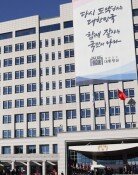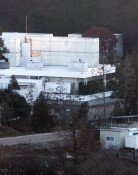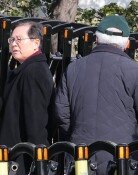Annual joint drills to be conducted in April without reduction
Annual joint drills to be conducted in April without reduction
Posted March. 09, 2018 07:51,
Updated March. 09, 2018 07:52
The annual joint military exercises of South Korea and the United States, which was postponed for the PyeongChang Winter Olympic Games, will be conducted on the first day of April. The news outlets in the United States quoted officials of the U.S. Department of Defense on Wednesday and reported that the annual Foal Eagle training will be launched on March 31 (April 1, Korea Time) and continue into May, with the Key Resolve exercise kicking off in mid and late April. While the two countries have postponed the announcement of such military agendas, it appears that the drill will be conducted as scheduled. The South Korean Defense Ministry repeatedly stressed Thursday that the drills would be conducted on a similar scale to previous years. In other words, there won’t be a significant cut in the length or the size of participating forces.
During a meeting with Adm. Scott H. Swift, commander of U.S. Pacific Fleet, on Wednesday, however, South Korean Defense Minister Song Young-moo said, “As there will be an inter-Korean summit in late April, when the joint military exercises will continue, there would be no need to deploy extended deterrence or nuclear-powered submarines to the Korean Peninsula.” “We will stand ready,” answered Adm. Swift, but Minister Song said, “No, not coming to the Korean Peninsula…” Minister Song’s words can be interpreted as a sign that there will be no need to deploy strategic weapons such as strategic bombers or nuclear-powered submarines during the joint military drills in April and May.
In a response to public backlash, the Korean Defense Ministry said Minister Song said it as a joke and a word of comfort to Adm. Swift for his efforts on the deployment of strategic assets. Well known for his inability to mince words, Minister Song’s remarks do not just strike as a joke or a slip of the tongue. In South Korean special envoy’s recent visit to the North, North Korean leader Kim Jong Un said, “I understand about the ROK-U.S. joint military exercises,” but he added he expects “it will be adjusted in the future.” Pundits say that Minister Song may have inadvertently slipped the fact that his ministry is considering cutting the size of joint military drills with the United States in order to appease the North before the inter-Korean summit to be held at Panmunjom in late April.
Chung Eui-yong, head of the presidential National Security Office, Suh Hoon, the chief of the National Intelligence Service, will visit Washington on Friday to brief the high-ranking officials of the Trump administration on the result of their talks with Kim Jong Un. Even if the North engages in talks with the United States, however, Washington is still keeping the firm stance to continue to impose sanctions and pressure on Pyongyang unless the talks produce any meaningful agreement. In Washington, many experts voice concerns about Pyongyang’s gambit to alleviate the intensity of sanctions.
The South Korean government is also taking part in the “pursuit of talks with on-going pressure” campaign. President Moon Jae-in also evaluated the result of his envoys’ visit to the North as an “achievement built together not only with the talks between the two Koreas but the strong support from the United States. Yet, we are witnessing the chief of national defense making silly jokes as if he were carried away with an appeasement drive; think about how his representation will be reflected in the eyes of the United States or North Korea. We must keep it mind that without pressure, we cannot bring the North to a negotiation table nor can we continue to pull it along.







